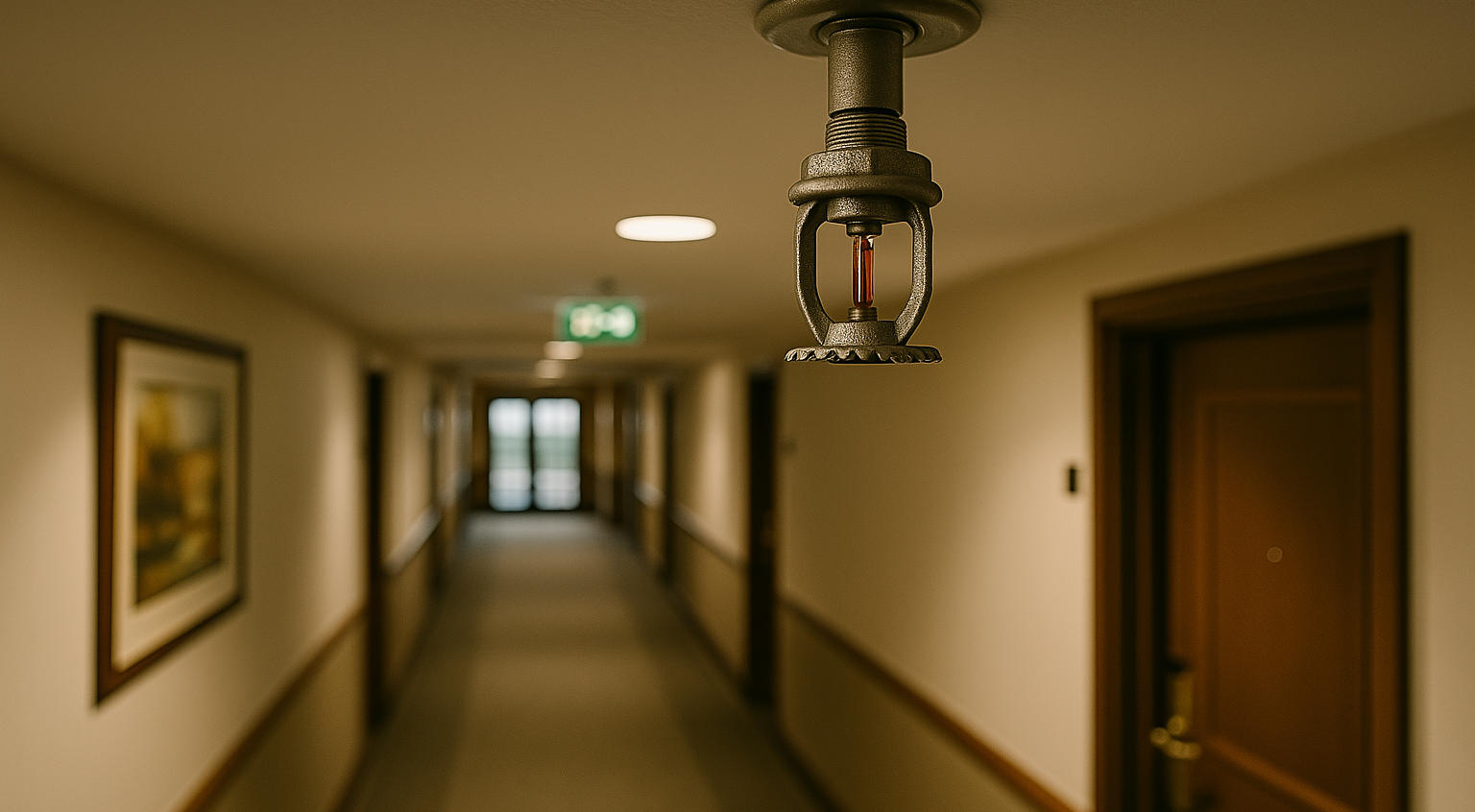How Hotels Can Strengthen Their Fire Protection Strategies
Hotels serve as temporary residences for guests from all over the world, making fire safety a critical priority in ensuring protection for occupants, employees, and valuable property. Given the complexity of hotel structures —ranging from high-rise towers to boutique establishments— implementing comprehensive fire protection strategies is essential for minimizing risks, maintaining compliance, and ensuring guest confidence in their safety.

The Importance of Fire Protection in Hotels
Fires in hotels can escalate quickly due to factors such as large-scale occupancy, multiple fire hazards (electrical appliances, kitchens, and heating systems), and delayed detection. Without proper preventive measures, a fire can lead to loss of life, extensive property damage, and financial repercussions. Implementing a structured fire safety plan reduces these risks and ensures swift response in emergencies.
Comprehensive Fire Detection Systems
Early fire detection is crucial for preventing disasters. Hotels must be equipped with high-performance smoke and heat detectors placed strategically in rooms, hallways, stairwells, and common areas. These systems should be interconnected with fire alarm panels to trigger emergency alerts promptly.
Additionally, fire alarm systems should be linked to emergency services for immediate response. Regular inspections and maintenance ensure these detection systems function optimally, significantly improving hotel safety.
Reliable Fire Suppression Systems
Fire suppression systems are essential for controlling fires before they spread. Automatic fire sprinklers are among the most effective solutions, providing rapid suppression in high-risk areas. Hotels should install sprinkler systems compliant with NFPA, FM Global, UL, TSE, and EN standards to ensure reliability and effectiveness.
Certain hotel areas, such as kitchens, laundry rooms, and generator spaces, require specialized suppression systems such as gas-based or foam extinguishing systems to prevent oil or electrical fires.
Strategic Emergency Evacuation Plans
A clear and well-communicated evacuation plan is essential to ensuring guest and staff safety. Hotels must have clearly marked emergency exits, evacuation route maps in guest rooms, and illuminated escape pathways.
Routine fire drills for employees and guests reinforce preparedness, ensuring occupants can safely exit the building in case of a fire.
Fire Safety Training for Hotel Staff
Employees must be trained on fire emergency protocols. Staff members should know how to use fire extinguishers, assist guests in evacuations, and coordinate emergency communications until authorities arrive.
Regular fire safety training workshops ensure all hotel personnel are prepared to handle fire-related emergencies effectively.
Routine Fire Safety Inspections and Compliance
Hotels must conduct periodic fire safety inspections to verify the functionality of their fire prevention systems. Routine checks of alarms, sprinklers, fire doors, and extinguishers help detect potential risks before they escalate into emergencies.
Additionally, ensuring compliance with local and international fire safety codes maintains operational legality and guest safety.
The Role of Technology in Fire Safety
Modern advancements in fire protection technology enhance hotel safety measures. Smart fire monitoring systems provide real-time alerts, improving response times and reducing risks. IoT-based smoke detectors and AI-powered safety management tools further optimize fire prevention strategies.
Conclusion
Hotels must adopt a proactive approach to fire protection. By implementing comprehensive fire detection and suppression systems, structured evacuation plans, staff training, routine inspections, and modern technology, hotels ensure guest safety and operational compliance.
For expert consultation and fire protection solutions, contact A1 Fire Sprinkler Systems Project Consulting Trade Co., Ltd..


